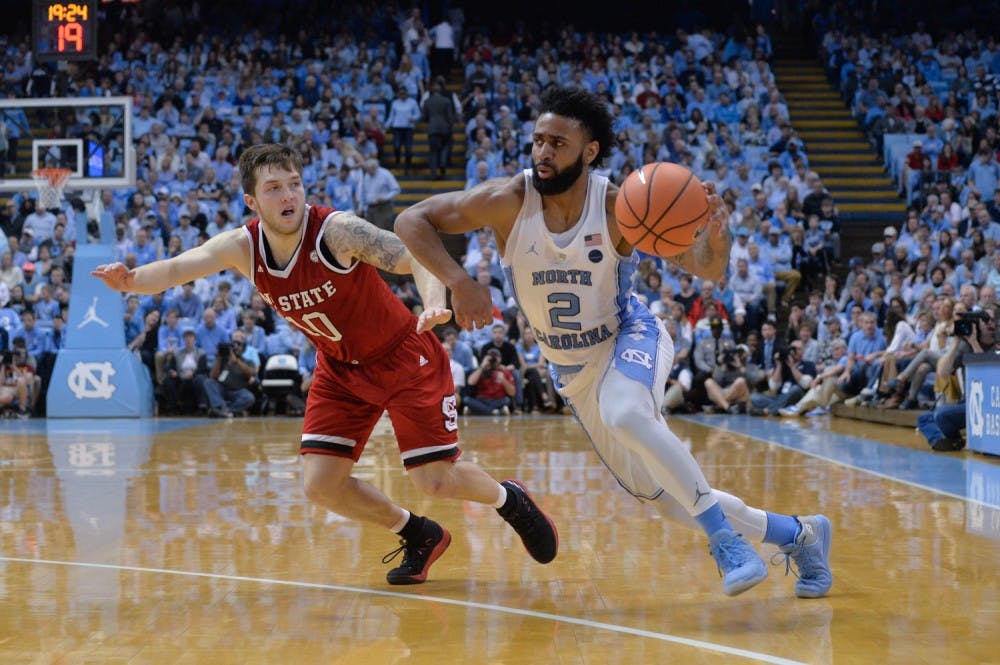The subject of fatigue is one that makes all coaches sweat, both young and old. The dilemma centers on how much to play your star athletes, while making sure their time on the court is efficient and productive.
It is a situation North Carolina men’s basketball head coach Roy Williams finds himself in now. Due to lack of experience from reserves, the team’s starting lineup has been asked to play more minutes than the typical UNC starting five — especially in conference play.
Luke Maye, Joel Berry II, Cameron Johnson, Kenny Williams and Theo Pinson — the five players who make up UNC’s starting lineup — have each logged at least 26.9 minutes per game. Just two members of last year's national championship squad (Berry and ACC Player of the Year Justin Jackson) played more than 25 minutes a contest.
Maye ranks first on the team on the season at 32.3 minutes a game. The junior leads the team in scoring and rebounding, and his play propelled UNC to an 11-2 start. In conference play, though, the starters’ minutes have only increased. In nine contests, each starter has played at least 28 minutes per game. Johnson has logged the least amount of time at 28.4 minutes, and Berry has averaged the most at 34.3 minutes, 2.6 minutes higher than his season average.
And the fatigue may have something to do with No. 19 North Carolina's sluggish stretches in its 5-4 conference season.
For example, as a result of Berry’s minutes steadily ticking up, the senior guard’s efficiency has gone down. Berry is averaging career highs in points (17), rebounds (3.5) and free-throw percentage (88.9 percent), but he is shooting a career-low 37.7 percent from the field. In addition to his low field goal percentage, his 3-point percentage is the worst of his career (35.3). These numbers show the massive strain being placed on Berry as of late.
It's also affecting UNC's other starters. First-year forward Garrison Brooks began the season in the starting lineup while Johnson nursed an injury. Due to Brooks' inexperience and ineffective play, his minutes have gone down drastically. On the season, the forward is averaging 17 minutes a contest, but he has played just 14.6 minutes a game in conference play. Despite his minutes going down, Brooks is the only reserve who Williams feels confident to play even 10 minutes per game in conference play.
All team statistics indicate the team is tired. The team is 194th in scoring defense in the NCAA at 72.7 points allowed. Even more troubling, the team's 3-point defense: UNC ranks 316th out of 351 Division 1 schools in opponent 3-point percentage at 37.9 percent. In fact, the Tar Heels have been so bad against the three, that the team has allowed 10.2 threes a game — the most in school history.
With the same five players asked to play around 75 percent of the game, the starters are spent come crunch time. With the game on the line and the team needing to make big shots and big stops, it becomes much harder to deliver without proper rest. Due to the lack of efficiency from the reserves, Williams has not had a choice but to continue deploying these five players.



